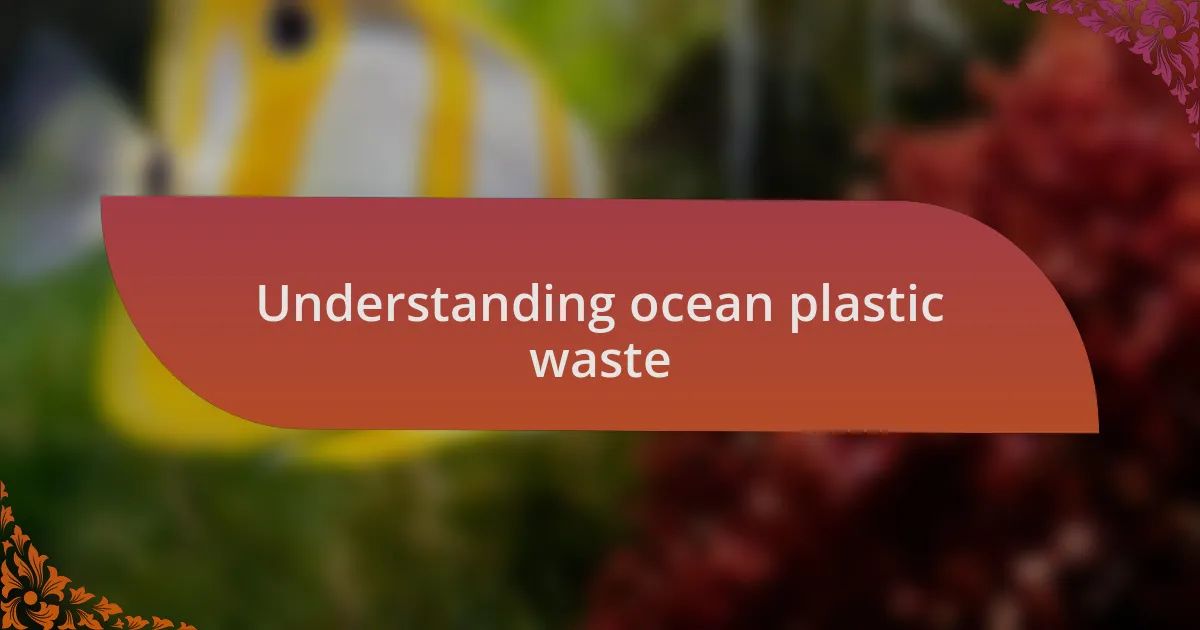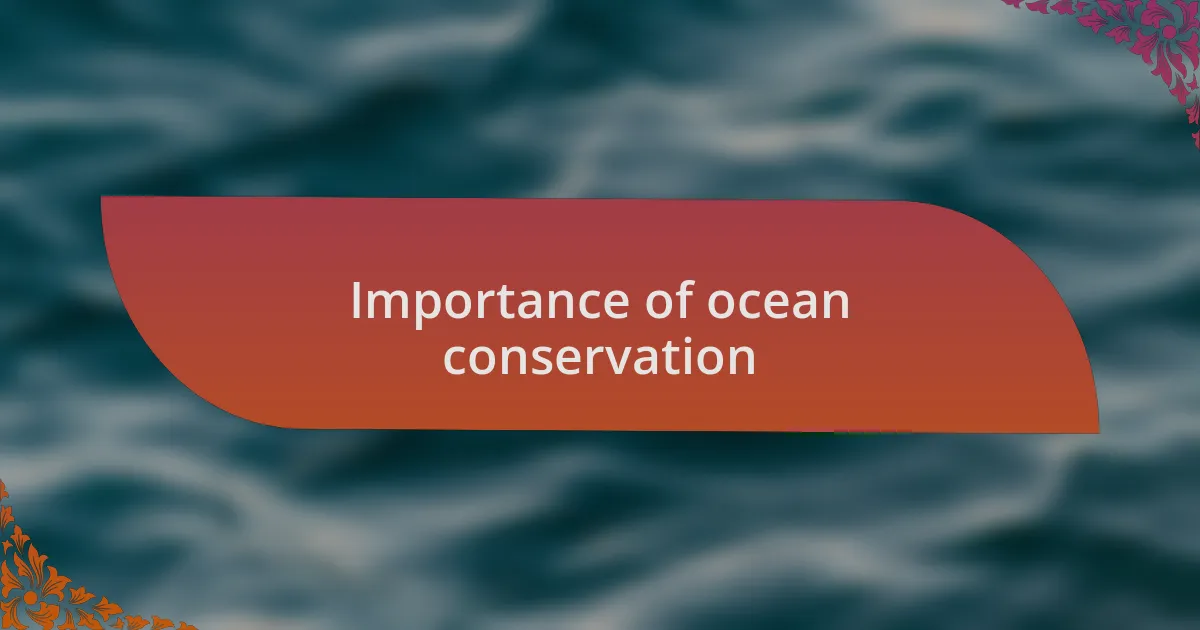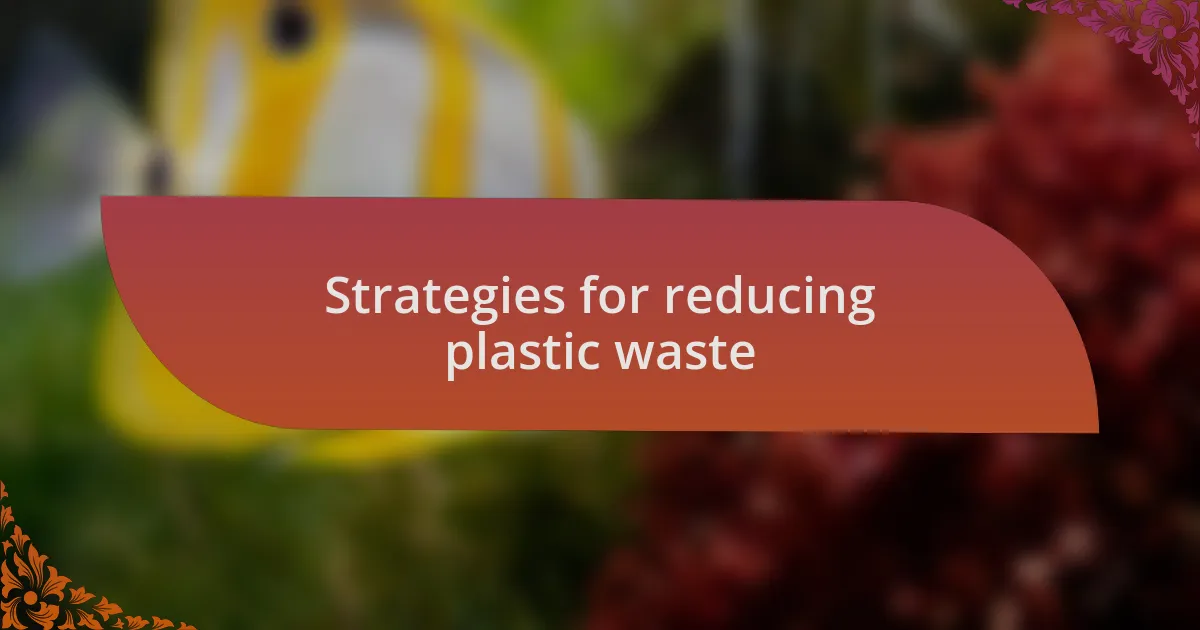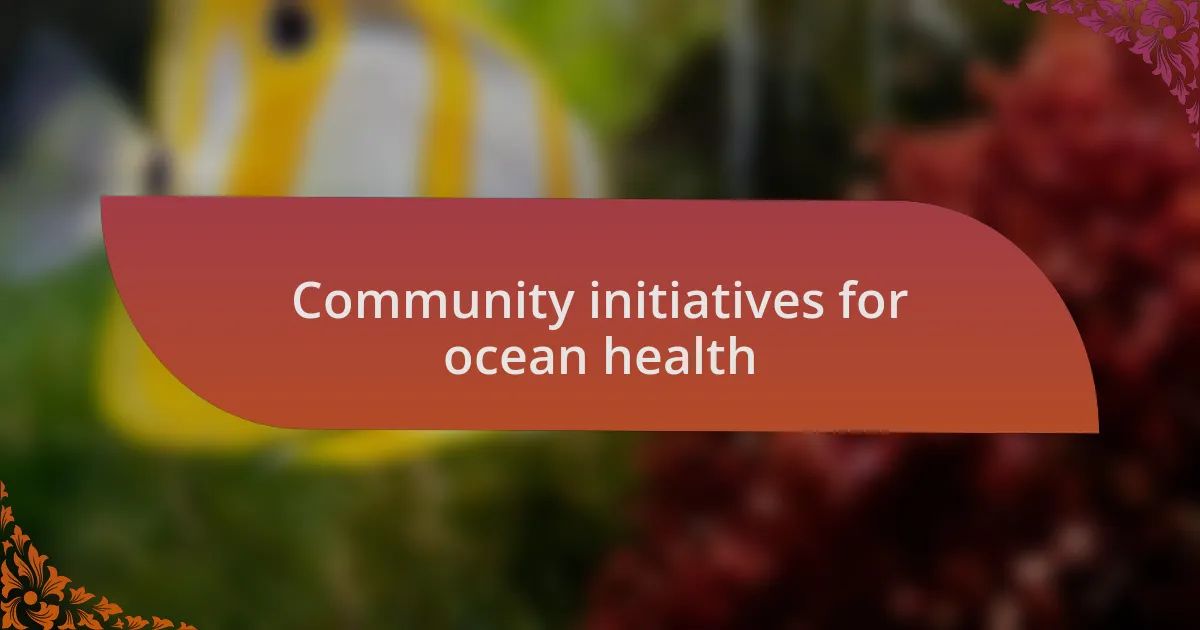Key takeaways:
- Over 8 million tons of plastic enter ocean systems annually, significantly impacting marine life and ecosystems.
- Ocean conservation is vital for ecosystem balance and climate regulation; our land actions directly affect marine health.
- Adopting reusable products and supporting sustainable brands are effective strategies for reducing plastic waste.
- Community initiatives, such as beach cleanups and educational workshops, can foster awareness and drive collective action for ocean health.

Understanding ocean plastic waste
Plastic waste in our oceans represents a staggering environmental challenge. I often find myself reflecting on my own experiences at the beach, where I can’t help but notice the remnants of our everyday lives scattered along the shore—bottles, bags, and straws. It raises an essential question: how did we let our oceans become this way?
What breaks my heart is understanding that over 8 million tons of plastic end up in our oceans each year. This isn’t just a statistic—it’s a reality I face when I participate in beach cleanups. I remember picking up fragments of plastic while listening to the waves crash, feeling the weight of not just the litter, but the impact on marine life.
Engaging with ocean plastic isn’t just about removing debris; it’s also about grappling with how our choices contribute to this crisis. Have you ever considered how a single plastic bottle can transform into countless microplastics, ultimately infiltrating our food chain? That thought lingers with me, reminding me that every small action can resonate through our environment in unexpected ways.

Importance of ocean conservation
Ocean conservation is crucial for maintaining the delicate balance of our planet’s ecosystems. During a recent visit to a coral reef, I was in awe of the vibrant marine life that thrives in this underwater paradise. It struck me how fragile this ecosystem is; even small changes due to pollution can have cascading effects, leading to coral bleaching and species extinction.
Every time I dive into the ocean, I am reminded of the connection we all share with marine life. It’s heartbreaking to think that our actions on land have dire consequences for creatures that inhabit these waters. Have you ever watched a sea turtle struggle to navigate past plastic waste? That image clings to my mind, pushing me to advocate for stronger conservation efforts and mindful consumption.
Moreover, the ocean isn’t just home to countless species; it plays a vital role in regulating our climate by absorbing carbon dioxide. I think of the ocean as a massive life-support system, and when we neglect its health, we ultimately jeopardize our own survival. As you ponder the importance of ocean conservation, consider how your choices today could foster a healthier future for both our seas and ourselves.

Strategies for reducing plastic waste
One of the most effective strategies I’ve found for reducing plastic waste is simply adopting reusable options. When I started using a stainless steel water bottle, I remember being surprised at how easy it was to break the habit of buying single-use plastic bottles. It seems like a small change, but every little effort adds up. Have you considered what substitutes might work well for you in your daily routine?
Another approach is to support brands and products that prioritize sustainability. I recall the excitement I felt when I discovered a local shop that sold package-free groceries. It made me realize that our purchasing power can drive change; when we choose products with minimal packaging, we send a clear message that we value the health of our planet. Isn’t it empowering to think that our choices can influence businesses to be more environmentally conscious?
Lastly, educating others about the impact of plastic waste is crucial. I often share my experiences during community clean-ups, and it amazes me how many people are unaware of the scale of the issue. By discussing the effects of plastic pollution on marine life and our health, we can inspire others to join the fight against plastic waste. Have you thought about how your voice can help raise awareness in your community?

Community initiatives for ocean health
When I participated in a local beach cleanup, the sense of camaraderie among the volunteers was palpable. It was heartwarming to see families and friends come together, all driven by a shared goal: protecting our oceans. Have you ever experienced that rush of hope when you realize that community action can truly make a difference?
In my experience, community initiatives often incorporate educational workshops to empower residents. I attended one where local experts discussed the effects of plastic on marine ecosystems, and it opened my eyes to the urgent need for action. It struck me how even a single session could ignite passion in participants to advocate for our waters—do you think your community has similar opportunities for engagement?
Another compelling approach I’ve seen is the formation of local recycling programs that creatively repurpose plastic waste. I remember my excitement when a neighbor started turning discarded plastic into artwork for public spaces. This not only raised awareness but also transformed what many consider trash into symbols of hope. Could your community benefit from innovative solutions like this?